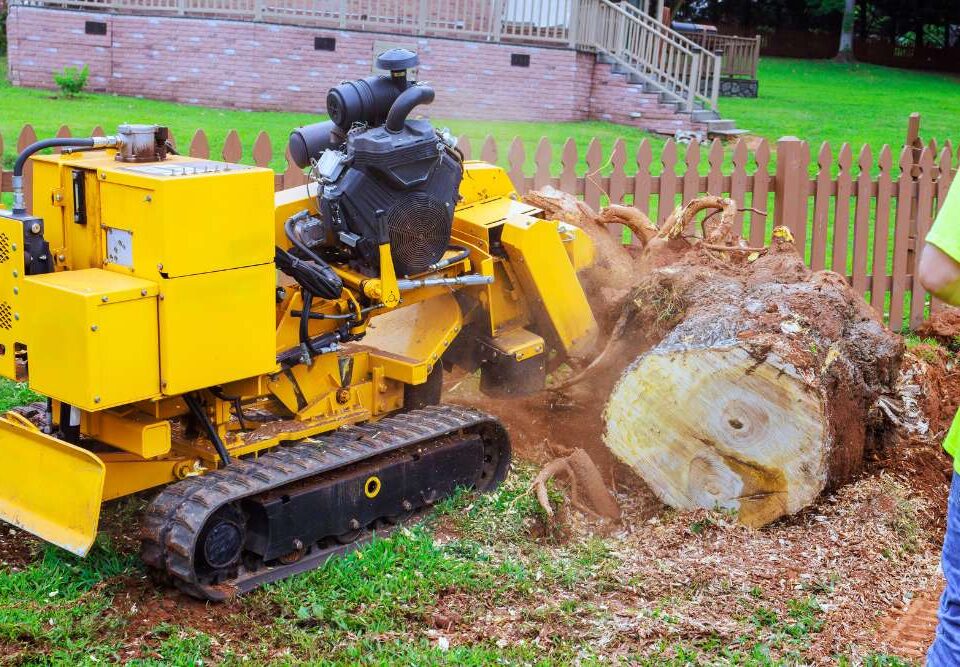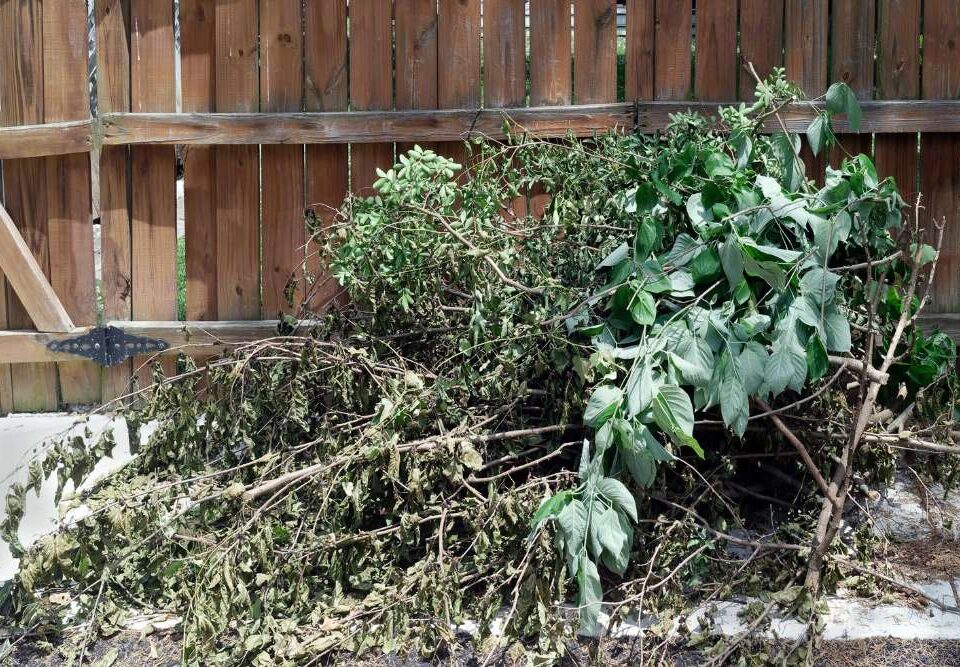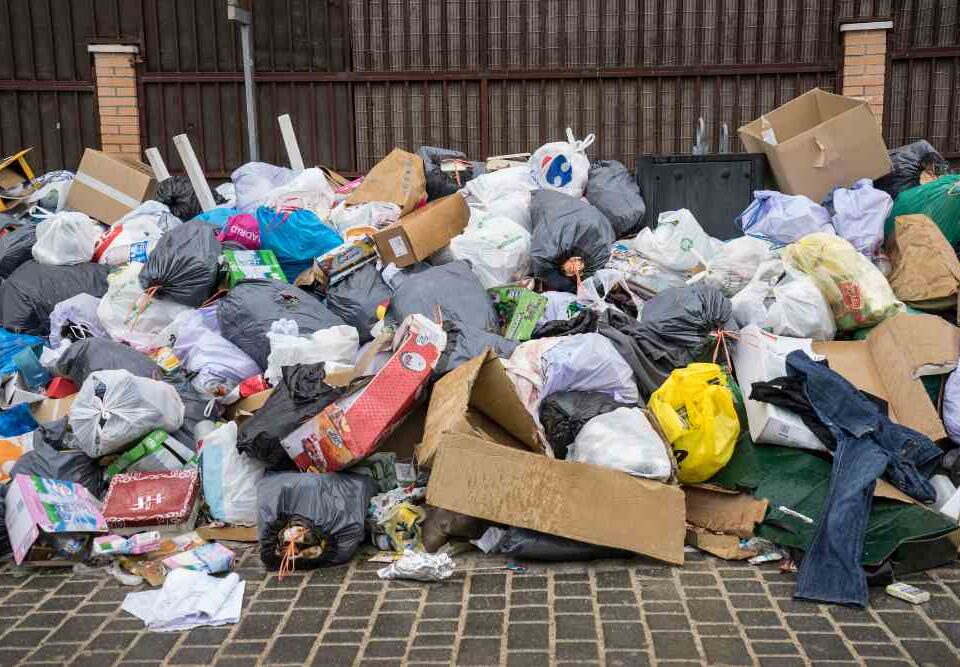
How to Clear Out a Home After an Estate Sale
August 11, 2025
Mattress Removal Eco-Friendly Disposal Options
August 11, 2025Eco-Friendly Yard Waste Removal What You Should Know
Understanding Eco-Friendly Yard Waste Removal Practices
Yard waste removal is more than just tidying up your outdoor space. Choosing eco-friendly methods means ensuring leaves, branches, and clippings are handled responsibly instead of ending up in a landfill. Composting is a natural way to recycle nutrients back into the soil. Grass clippings and organic matter can nourish your garden and reduce chemical fertilizers. Proper separation of organic debris from general waste ensures harmful materials like plastics or treated wood do not contaminate compost heaps. By thinking ahead and planning disposal, homeowners can keep green spaces thriving while minimizing environmental impact. This approach also promotes a cleaner neighborhood and contributes to broader environmental health, making your garden a small but significant part of sustainability.
Eco-conscious removal extends beyond composting. Using local yard waste collection services ensures debris is processed efficiently and sustainably. Many companies now implement sorting, recycling, or even converting yard debris into mulch or biofuel. These measures not only reduce waste volume but also save energy and lower greenhouse gas emissions. Yard maintenance can become a rewarding routine when approached with environmental care. Simple habits like cutting back overgrowth mindfully, mulching, and avoiding chemical-heavy treatments protect local ecosystems while keeping your garden functional and attractive.
The Environmental Benefits of Proper Yard Debris Disposal
Handling yard debris responsibly directly impacts the environment. Piling leaves or branches carelessly can obstruct drainage systems and contribute to soil erosion. Choosing eco-friendly removal methods reduces pollution risks and promotes healthier plant growth. Recycling yard waste into mulch or compost prevents carbon emissions from decomposition in landfills and supports soil fertility. This cyclical approach helps maintain balanced ecosystems by returning essential nutrients to the earth, encouraging sustainable gardening practices. Homeowners engaging in environmentally conscious waste management contribute to cleaner air and water quality, aligning personal landscaping efforts with global ecological goals.
Proper yard waste management also fosters biodiversity. Gardens and lawns benefit from nutrient-rich soil, which supports insects, birds, and beneficial microorganisms. By limiting synthetic chemical use and practicing natural debris recycling, gardeners create habitats for native species while minimizing disruption. The environmental ripple effect reaches beyond individual properties, improving urban green spaces and wildlife corridors. Integrating eco-friendly habits such as mulching, composting, and responsible pruning ensures that your garden serves both aesthetic and ecological functions, blending beauty with environmental stewardship.

Seasonal Yard Waste Considerations for Eco-Friendly Practices
Different seasons generate distinct types of yard waste, and understanding these variations helps optimize eco-friendly disposal. Spring brings clippings and pruning debris that can easily be composted. Summer often produces higher volumes of grass and plant trimmings that, if left untreated, may dry and pose fire hazards. Fall generates fallen leaves and branches, which can be converted into mulch or compost, enriching soil for winter. Winter yard maintenance may focus on removing dead plant matter and clearing pathways. Tailoring waste removal strategies to seasonal demands ensures safety, efficiency, and environmental responsibility throughout the year.
Seasonal planning also allows homeowners to schedule appropriate services, minimizing excess waste accumulation. Proper storage of compostable materials through colder months prevents odor and nutrient loss. Mulching leaves before winter can protect root systems and improve soil health. By being mindful of seasonal shifts, gardeners can reduce the strain on local waste systems while enhancing their garden’s vitality. Timing yard waste removal according to seasonal needs makes outdoor maintenance more manageable and ecologically sound.
Choosing the Right Eco-Friendly Yard Waste Removal Service
Selecting a service that prioritizes environmental responsibility ensures that yard debris is processed sustainably. Look for companies that recycle, compost, or convert waste into reusable materials rather than sending it to landfills. Transparent policies about waste handling and proper disposal are key indicators of eco-conscious operations. Services that use minimal fuel equipment, or electric-powered machinery, further reduce carbon emissions. By partnering with the right provider, homeowners can maintain pristine gardens while contributing positively to environmental preservation.
A reputable eco-friendly service also provides guidance for separating recyclable materials, offering tips for composting and proper yard care. This educational approach empowers property owners to take proactive steps, creating a collaborative effort between service providers and clients. Eco-conscious services can also manage bulky debris such as tree limbs or brush efficiently, transforming potential waste into mulch or biofuel. Engaging with a knowledgeable provider simplifies green maintenance while ensuring debris contributes to sustainable cycles.
Homeowner Strategies for Reducing Yard Waste Impact
Homeowners can take an active role in minimizing yard waste through preventive measures and smart landscaping choices. Planting native species reduces pruning needs and water consumption, while leaving some natural debris in place fosters soil health. Composting kitchen scraps alongside yard waste can significantly lower overall disposal requirements. Efficient watering and regular maintenance prevent overgrowth that might otherwise generate excess debris. Implementing these strategies promotes sustainability and lessens reliance on external removal services.
Practical habits also include creating designated compost bins and mulching in place rather than discarding organic matter. Collecting rainwater to nourish plants and utilizing cover crops during dormant seasons enhances soil structure and fertility. By adopting a proactive approach, homeowners can transform waste into resourceful elements for their gardens. Eco-friendly practices extend beyond waste collection, becoming integral to the rhythm of property care and establishing a positive environmental footprint over time.
Mulching and Composting for Sustainable Gardens
Mulching and composting represent the cornerstone of eco-friendly yard management. Mulch retains soil moisture, suppresses weeds, and gradually enriches soil with organic material. Composting decomposes grass clippings, leaves, and vegetable scraps into nutrient-rich soil amendments. Both techniques recycle nutrients naturally and reduce dependence on chemical fertilizers. When combined, mulching and composting enhance soil quality, promote plant growth, and support a sustainable ecosystem within your yard.
The process begins with separating appropriate organic materials and layering them for optimal decomposition. Monitoring moisture and aeration ensures healthy microbial activity that breaks down debris efficiently. Mulch can also be created from shredded branches and fallen leaves, providing a long-lasting protective layer. By employing these techniques, homeowners achieve a thriving garden environment that benefits the planet, conserving resources and encouraging natural cycles in landscaping.
Reducing Chemical Use Through Eco-Friendly Practices
A key aspect of sustainable yard waste removal is minimizing chemical inputs. Overuse of fertilizers, pesticides, and herbicides can contaminate soil and local waterways. Natural compost and mulch reduce the need for these substances by supplying essential nutrients organically. Choosing mechanical or manual weed control methods limits chemical exposure and encourages biodiversity. By reducing synthetic inputs, gardeners foster healthier soil, protect wildlife, and create safer spaces for children and pets.
Avoiding chemicals also aligns with long-term garden resilience. Natural pest control, crop rotation, and companion planting strengthen plant immunity and reduce dependency on harmful substances. Homeowners can enjoy lush landscapes while maintaining environmental integrity. Combining these approaches with thoughtful yard waste removal ensures that every element of garden care contributes to a balanced, eco-friendly system.
Community and Local Impact of Green Yard Waste Removal
Eco-friendly yard waste removal benefits extend beyond individual properties. Neighborhoods that adopt sustainable practices experience improved air quality, reduced pollution, and healthier urban greenery. Community composting initiatives and shared mulch programs can lower waste disposal costs and enhance social cohesion. Responsible yard waste management reflects a collective commitment to environmental stewardship and encourages others to adopt similar practices.
Local governments and municipalities often provide green waste collection programs that complement private eco-friendly efforts. Supporting these programs ensures yard debris is handled sustainably while reinforcing community standards. Homeowners who participate actively in these initiatives help maintain urban ecosystems and promote public health. The cumulative effect of responsible yard care elevates the quality of life and fosters long-lasting environmental consciousness.
Innovative Technologies in Yard Waste Recycling
Modern technology is revolutionizing how yard waste is recycled. Machinery that converts organic debris into mulch or biofuel, along with electric-powered removal equipment, reduces carbon footprints and improves efficiency. Smart scheduling software helps track collection and processing, optimizing resource use. Emerging innovations also allow for more precise composting, ensuring that nutrients are retained and waste is minimized. Technology thus enables sustainable yard care at a larger scale while supporting homeowners in maintaining eco-conscious practices.
Incorporating innovative solutions into yard waste removal also creates opportunities for creative landscaping. Homeowners can transform branches, leaves, and trimmings into artful garden borders, pathways, or raised beds. The fusion of technology and ecology empowers individuals to harmonize efficiency with environmental responsibility. Staying informed about emerging tools and services ensures that every effort in yard maintenance contributes meaningfully to sustainability goals.
Long-Term Benefits of Eco-Friendly Yard Waste Management
Investing in environmentally conscious yard waste removal yields long-term rewards. Soil health improves, reducing erosion and supporting vibrant plant growth. Reduced landfill contributions lower greenhouse gas emissions and conserve natural resources. Homeowners enjoy aesthetically pleasing gardens with less effort and fewer chemical interventions. Sustainable practices also foster awareness of ecological impact, encouraging continued care and innovation in landscaping.
Over time, consistent eco-friendly yard management strengthens resilience against climate variability and urban environmental pressures. Landscapes become self-sustaining systems that nurture biodiversity and improve property value. Emphasizing long-term planning alongside daily maintenance helps integrate environmental responsibility seamlessly into lifestyle choices, creating a lasting legacy of green living.
Conclusion
Eco-friendly yard waste removal offers both practical and environmental advantages that enrich residential and communal spaces. Thoughtful practices such as composting, mulching, and responsible debris management conserve natural resources and promote healthy ecosystems. Leveraging services that prioritize recycling and sustainable disposal ensures that your yard contributes positively to environmental preservation while reducing landfill impact. This approach fosters a cleaner, safer, and more enjoyable outdoor environment for both residents and wildlife alike.
For professional assistance in sustainable waste management, consider contacting North Bay Junk Removal located in Santa Rosa, CA. Their experienced team provides comprehensive junk removal solutions, emphasizing eco-friendly practices. Reach out to 707-478-6817 to schedule services or discuss personalized strategies for efficient and responsible yard maintenance. Partnering with a dedicated provider guarantees that your property benefits from expertise, equipment, and commitment to environmentally conscious junk removal.




